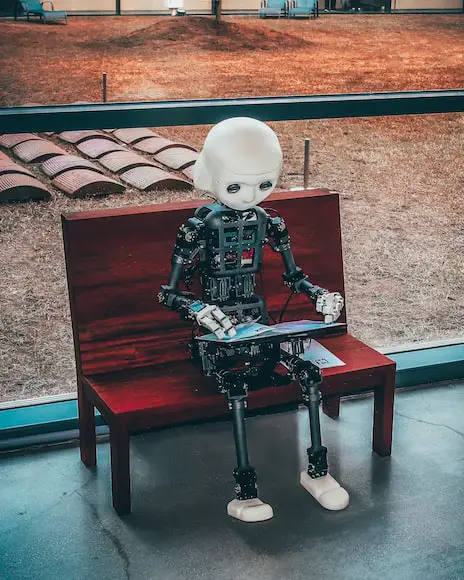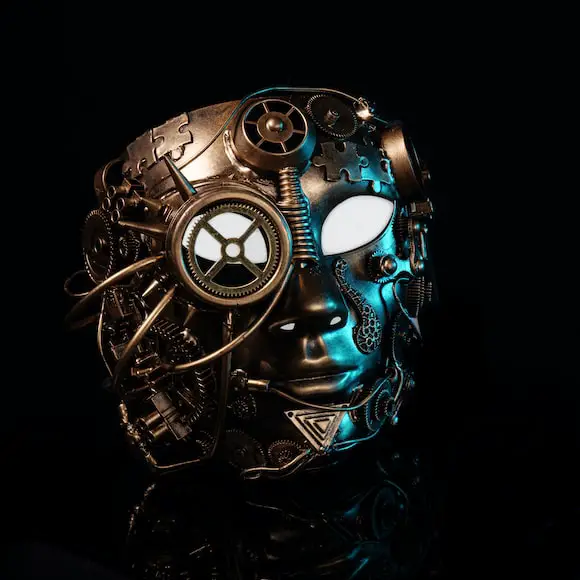There is no doubt that artificial intelligence (AI) is rapidly evolving then ever. With the advent of new technologies, AI is becoming more sophisticated and is being used in a 0.variety of industries. While there are many benefits to using AI, there are also some potential risks, which simply Question arise that is Artificial Intelligence Good Or Bad?
The debate over whether artificial intelligence is a good or bad thing has been going on for years, with no clear consensus. Some people believe that AI will eventually lead to the downfall of humanity, while others believe that it will be our savior. So, which is it?
General thoughts on AI positive and negative side
In this blog post, we will explore both the good and bad sides of AI to help you better understand this technology. On the positive side, AI can be used to automate repetitive tasks and processes. This can free up time for humans to focus on more creative or critical tasks.
Additionally, AI can be used to make better decisions by analyzing data more effectively than humans could alone. For example, hospitals are using AI-powered chatbots to help patients schedule appointments and access their medical records. On the other hand, there are some potential risks associated with AI.
As AI becomes more advanced, it has the potential to replace human jobs. This could lead to mass unemployment and social unrest.
There are definitely some risks associated with artificial intelligence. For one, it could lead to mass unemployment as machines begin to do more and more jobs than humans currently do. Additionally, AI could be used for nefarious purposes, such as creating powerful weapons or hacking into sensitive systems.
On the other hand, there are also many potential benefits of artificial intelligence. It could help us solve some of the world’s most pressing problems, such as hunger and disease. Additionally, AI could make our lives easier by taking care of mundane tasks or providing us with personalized recommendations.
Ultimately, only time will tell whether AI is a force for good or evil.
The danger of AI is weirder than you think | Janelle Shane
What is Bad About Artificial Intelligence?
There are a few key things that make artificial intelligence (AI) bad.
First, AI can be used to create powerful and sophisticated weapons. This could lead to a future where AI-controlled robot armies fight each other, or even worse, humans fight against AI-controlled armies.
Second, AI can be used for mass surveillance. This means that every move we make, every conversation we have, and every thought we think could be monitored by AI. This would violate our privacy and erode our civil liberties.
Third, AI can be used to manipulate and control people. For example, imagine an AI system that knows everything about your likes and dislikes, your fears and desires and then uses this information to manipulate you into doing what it wants. This could be used for political gain or simply to get you to buy a product you don’t need.
Finally, as artificial intelligence gets smarter and smarter, it will eventually surpass human intelligence. There is potential possibility that AI could lead to humans becoming slaves to AI or even extinct altogether.
Is Ai Good Or Bad for Society?

There is no simple answer to this question. It depends on how you define “good” and “bad.” If you are concerned about the potential for AI to be used for harm, then you might conclude that AI is bad for society.
On the other hand, if you believe that AI can be a force for good, then you might conclude that it is good for society. Let’s start with the potential risks of AI. One worry is that as AI gets more powerful, it could become uncontrollable and pose a threat to humanity.
Another concern is that AI could be used to do evil things, such as creating autonomous weapons or being used in cyber attacks.
Finally, there is the worry that as AI gets better at doing certain tasks, humans will become obsolete and suffer from mass unemployment.
Now let’s look at the potential benefits of AI in soceity.
First, AI can help us solve problems that are too difficult for humans to solve on their own, such as climate change or disease outbreaks. Second, AI can make our lives easier by automating tedious tasks like data entry or customer service.
Third, AI has the potential to enhance human cognitive abilities and help us achieve things we never thought possible, such as developing new medications or exploring distant galaxies.
So which side is right? There isn’t necessarily a correct answer. It depends on your values and priorities.
What are top 4 Negative Effects of Artificial Intelligence?
- Artificial intelligence can lead to job loss as machines increasingly replace human workers in a variety of tasks.
- Artificial intelligence technology may be used for harmful purposes, such as creating autonomous weapons.
- The development of artificial intelligence could result in an unequal distribution of its benefits, as those who control the technology may become more powerful than those who don’t.
- AI systems are prone to errors and biases. Due to their complex nature, it is difficult to design AI systems that are completely free from error. Additionally, AI systems often reflect the biases of those who design and operate them.
Is Artificial Intelligence Good for Us?
There is no simple answer either to the question of whether artificial intelligence (AI) is good for us. On the one hand, AI has the potential to helping us solve problems, from climate change to healthcare. On the other hand, there are legitimate concerns about the impact of AI on our society and economy, including job loss and inequality.
The truth is that AI is likely to have both positive and negative impacts on our lives in the years to come. It is important to consider both sides of the issue before making any decisions about whether or not to embrace AI technology.
On the positive side, AI has the potential to help us address some of humanity’s biggest challenges.
For example, by automating repetitive tasks and freeing up human workers for more creative endeavors, AI could help boost productivity and economic growth. In addition, AI-powered decision-making could help us make better choices about everything from environmental policy to healthcare.
Is Artificial Intelligence a Threat to Humans
The rise of artificial intelligence has led to fears that machines could one day surpass human intelligence and pose a threat to humanity. However, there is no evidence that this will ever happen. Artificial intelligence is still far inferior to human intelligence, and there is no reason to believe that this will change in the future.
In fact, artificial intelligence may even help humans become smarter and more efficient.
Where Artificial Intelligence Good Or Bad Debate ends?
The debate over whether artificial intelligence is good or bad for humanity is one that has been going on since the inception of AI. On one side of the debate are those who believe that AI will ultimately be a force for good, helping us to solve many of the world’s problems. On the other side are those who believe that AI will ultimately lead to our downfall, as machines become smarter than us and take over.
So far, there is no clear winner in this debate. Both sides have valid points, and it’s hard to say definitively whether AI will be a force for good or bad. However, one thing is certain, AI is changing the world as we know it, and we need to be prepared for whatever future lies ahead.
Any new technology brings blessings and curses too. It only depends on how we human take it and utilize it. We belive we will accept AI as blessing.
What are the Positve effects of Artificial Intelligence so far?
The potential benefits of artificial intelligence (AI) are immense. Here are just a few examples of how AI can make our lives better:
1. Smarter and more efficient decision-making: AI can help us make better decisions by processing large amounts of data quickly and accurately. For example, AI can be used to analyze data from financial markets to help predict future trends or to identify new opportunities for businesses.
2. Improved healthcare: AI can be used to diagnose diseases earlier and more accurately than ever before. It can also be used to develop new treatments and drugs, as well as to personalize care for each patient.
3. A cleaner environment: AI can be used to develop cleaner and more efficient energy sources, as well as to manage resources more effectively. For example, AI-powered sensors can be used to monitor air quality or water levels in real-time, allowing us to take action immediately when pollution or other problems are detected.
4. Safer roads and transport: AI can help us make transportation safer and more efficient. For example, self-driving cars that use AI technology are being developed which could reduce the number of accidents on our roads significantly.
Artificial Intelligence And the Future of Humans

The future of humans and artificial intelligence is an area of great interest and speculation. Some believe that artificial intelligence will eventually surpass human intelligence, leading to a future in which machines can do everything better than humans. Others believe that artificial intelligence will augment human abilities, making us smarter and more capable than ever before.
There is no doubt that artificial intelligence is becoming increasingly sophisticated. Machine learning algorithms are getting better at completing tasks that were once thought to be exclusively human domain, such as driving a car or translating languages. As AI continues to improve, it is not unreasonable to think that its capabilities will continue to increase, eventually leading to superhuman levels of intelligence.
However, it is important to remember that AI is still in its infancy. There are many things that humans can do better than machines, such as creative thinking, empathy, and social interactions. It is likely that there will always be some tasks that only humans can do well.
Conclusion
In his blog post, “Artificial Intelligence Good Or Bad,” We explores the potential implications of artificial intelligence (AI) on humanity. Articles begins by acknowledging that AI presents a number of benefits, such as the ability to automate repetitive tasks and make better decisions than humans. However, he also notes that AI could potentially be used for malicious purposes, such as creating false information or manipulating people’s emotions.
Ultimately, We concludes that whether AI is good or bad depends on how it is used. If it is used for beneficial purposes, it can improve our lives; if it is used for harmful purposes, it can cause great harm.
We should always remember “With Great power comes with great responsibility”


